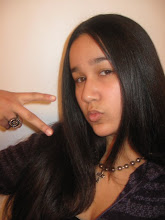Sarita Beekie
Ms. Peifer
10 IB - Hour 5
26 April 2009
LRJ #1 - Tankas
In Princess Nakuda's tanka, "I Waited and I", the words "yearned" and "stirred" share the same "er" sound. In this poem, both words emphasize the two main ideas of the poem that the princess is waiting for someone, and is wanting that someone to arrive, but the imagery of the autumn breeze stirring her curtains also gives the reader a heightened sense of the princess' loneliness. In Oshikochi Mitsune's tanka, "journey" and "summer" also share the "er" sound, and these words are important to the imagery of the poem, which illustrates the poet on a journey in the summer, yet the poet is standing in "the tree shade" with, "[his] mind floating" which clarifies the very reflective mood of this poem. In Ki Tsurayuki's tanka "Now, I Cannot Tell", "know" and "old" which are used in the last two lines, "In this place I used to know / Keep their old fragrance" (Tsurayuki 4-5) emphasizes the familiarity the poet has with his old friend's house, despite the fact that it has been a long time since they have seen each other. In Ono Komachi's tanka " How Helpless My Heart", "helpless", "tempt", and "severed" all contain the short "e" sound, which helps convey the author's comparison of temptation to the stream, and her heart to a reed, and that "[her] body, like a reed severed at the roots would drift along" (Komachi 3-5), "were the stream to tempt" (Komachi 2). Lastly, in Priest Saigyo's tanka "Every Single Thing", the long "a" sound is prominent througout most of the "emphasis words" in this poem, such as "changes", "always", and "same", as the poet reflects on the notion that, "[everything] changes and is changing...yet with the same light the moon goes on shining" (Saigyo 2-5). All in all, these tankas all appear to portray a very reflective mood of some sort.
Tanka
Poetic musings
Tankas are impossible
Picky, portentious
Well, what about haikus?
I'm sure they cause much less blues.
Monday, April 27, 2009
Subscribe to:
Post Comments (Atom)

1 comment:
Well-written journal. Your tanka is great! I like the connection of tanka and haiku, bravo.
Make sure you take a look at what are the themes in each tanka
Post a Comment